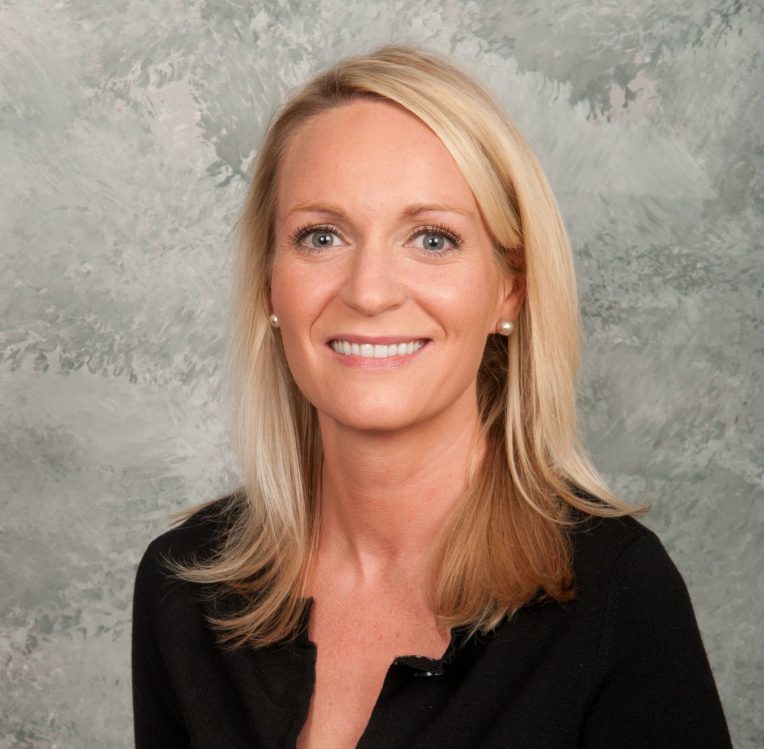Dr. Kyle Miller is an Associate Professor of Child Development and Elementary Education in the School of Teaching and Learning. Prior to completing her Ph.D. and joining the Illinois State University (ISU) faculty in 2012, she was an urban educator in Boston Public Schools. In addition to her teaching, she has three research areas that she is very passionate about: Multi-tiered System of Supports (MTSS), Self-care as part of trauma informed teaching, and fathers’ engagement with their children.
Multi-tiered System of Supports
For the past year, Miller and colleagues at ISU have partnered with an elementary school in Unit 5 to create a clinical experience that focuses on MTSS. The partnership was a result of a collaborative statewide effort to better prepare preservice teachers to understand and navigate the tiered system of academic, social, emotional and behavioral supports that are utilized by schools in the state.
The clinical experience was redesigned to focus on components of teaching and learning that support MTSS through assessment, instruction, and the culture/climate of the classroom. It was also designed in a way that would address the many inequitable practices that can emerge during implementation of MTSS if schools do not center equity and a strengths-based approach to learning.
MTSS tends to bring out a lot of deficit-thinking from preservice teachers – focusing on what students are ‘lacking’ or describing students as ‘at-risk’. The experience tried to tackle that concern and has now evolved into a module that is disseminated across all sections of the TCH 205 clinical experience. The module also served as a foundation for a professional learning series with NTTs this fall.
“Unless we cover the MTSS framework, discuss ways to implement it in equitable ways, and then critique what they are seeing, preservice teachers will adopt the status quo,” said Miller. “Our goal is to make sure that our preservice educators are better prepared for MTSS that support equity and anti-bias.”
Self-care
For the past three years, Miller has collaborated with Dr. Karen Flint-Stipp in the School of Social Work on a curriculum to promote preservice professional resiliency as part of trauma-informed practices. They recognized that many of their ISU students, in teacher education and social work, were experiencing preservice burnout because courses don’t really explore the impact of student trauma on adults in the room.
“In some cases, ISU students would hear stories of hardships from their students in clinical settings, these stories deeply impacted them,” said Miller. “What the ISU students often experienced as a result was vicarious or secondary trauma.”
Miller and Flint-Stipp created a mini-curriculum for their courses that focused on self-care as a buffer to the secondary trauma their students were experiencing or may experience in the future. To be a trauma-informed teacher, teachers must prioritize their health (physically, emotionally, socially, intellectually and spiritually). Trauma-informed practice requires positive and strong relationships with students, an ability to attune to student needs, and establishing routines. Those components can really be compromised if you aren’t engaging in self-care.
“Self-care isn’t selfish – it’s essential,” said Miller. “You must care about yourself if you want to care for others and I’m so passionate about it because I fail at it all the time. But it’s so important for your health.”
McLean County Fatherhood Coalition
For the past two years, Miller has been a part of a local fatherhood coalition that aims to better support fathers on their engagement with their children.
“Fathers are understudied, misunderstood, and exist within communities and schools that cater to mothers,” said Miller. “This puts fathers at a disadvantage and marginalizes their engagement.”
Miller helped the coalition facilitate a qualitative study to learn more from fathers through interviews and focus groups.
The research exposed the number of ways fathers engage with their children as they push against the stereotype that fathers are the ‘breadwinner’. It also exposed that schools are not welcoming places for fathers and, therefore, they focused mainly on children’s extra-curricular activities.
There is now a local fathers’ group – Dads Uplifting Dads, which meets virtually every week and Miller created materials for the elementary education program to discuss fathers as part of a family engagement module during ISU students’ junior years.

